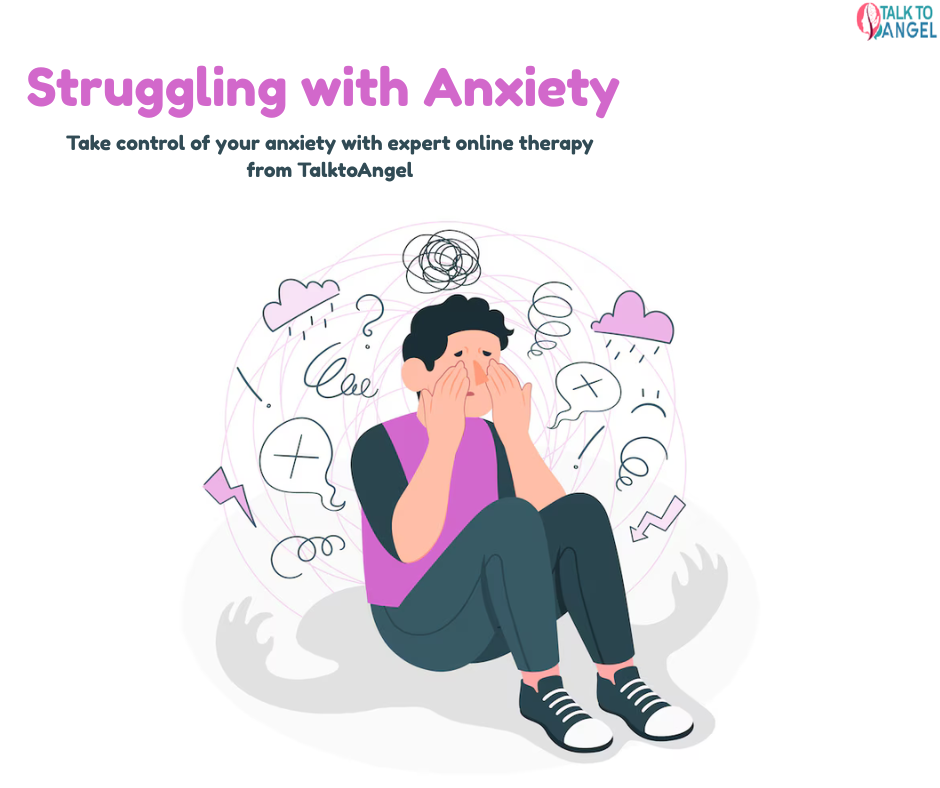Anxiety and depression are among the most common mental health conditions globally, affecting millions of individuals every year. With growing awareness about mental health, more people are seeking professional help, but a common question remains: Can counselling psychologists treat anxiety and depression effectively? The short answer is yes. Let’s explore how and why counselling psychologists play a crucial role in managing and overcoming these mental health conditions.
Understanding Anxiety and Depression
Before diving into how counselling psychologists help, it's essential to understand what anxiety and depression are.
Anxiety goes beyond sporadic tension or concern. It involves enduring emotions that interfere with day-to-day functioning, such as fear, dread, or unease.
Persistent sadness, hopelessness, and a loss of interest or enjoyment in day-to-day activities are characteristics of depression.
Both conditions can vary in intensity and duration, and often co-occur, making treatment more complex, but certainly not impossible.
Who Are Counselling Psychologists?
Counselling psychologists are mental health professionals trained to assess, diagnose, and treat emotional, psychological, and behavioural issues. Unlike clinical psychologists who often work with severe mental illnesses, counselling psychologists generally focus on helping individuals cope with everyday stressors, relationship issues, and common mental health conditions like anxiety and depression.
That said, the line between a clinical psychologist and a counselling psychologist is often blurred, as both may use similar therapeutic techniques such as cognitive-behavioural therapy (CBT), mindfulness-based therapy, and interpersonal therapy. When searching for support, many people start with terms like “clinical psychologist near me” or “counselling psychologist online”, and both professionals can be equipped to help.
How Counselling Psychologists Treat Anxiety
Counselling psychologists employ a variety of evidence-based techniques to treat anxiety, including:
- Cognitive-Behavioural Therapy (CBT)
Through cognitive behavioural therapy, people can identify harmful thought patterns and swap them out for more sensible and productive ones. This is particularly effective in treating generalised anxiety disorder (GAD), social anxiety, and panic disorder.
- Exposure Therapy
For specific phobias or PTSD, exposure therapy gradually exposes individuals to the source of their fear in a controlled way to reduce the anxiety over time.
- Mindfulness-Based Approaches
By keeping them from overanalysing or catastrophizing situations, mindfulness helps clients with anxiety stay rooted in the here and now.
- Relaxation and Breathing Techniques
Counselling psychologists often teach practical tools like deep breathing, progressive muscle relaxation, and visualisation to manage physical symptoms of anxiety.
How Counselling Psychologists Treat Depression
For depression, treatment usually involves addressing negative thought patterns, improving daily functioning, and increasing engagement in rewarding activities. Common approaches include:
- Interpersonal Therapy (IPT)
IPT focuses on improving relationships and communication, which can significantly impact mood and emotional well-being.
- Behavioural Activation
This technique encourages individuals to participate in activities they once enjoyed, aiming to increase positive reinforcement in daily life.
- Solution-Focused Therapy
Instead of obsessing about the past, this goal-directed approach places a strong emphasis on coming up with workable answers to present difficulties.
- Supportive Counselling
Sometimes, simply having a space to talk through issues with a skilled listener is therapeutic. Counselling psychologists provide empathy, validation, and guidance tailored to individual needs.
The Rise of Online Therapy
In recent years, especially post-pandemic, online therapy has emerged as a highly effective and convenient alternative to in-person sessions. Whether you're searching for an "online therapist" or a “clinical psychologist near me,” you’ll likely come across professionals offering virtual sessions.
Benefits of Online Therapy:
- Accessibility: You can communicate with a therapist from any location, which is very useful in isolated places.
- Convenience: Flexible scheduling means therapy can fit into your daily routine without commuting.
- Privacy: Sessions can be conducted from the comfort of your home, making it easier for some to open up.
- Many counselling psychologists now offer online services via secure platforms, making it easier than ever to get help for anxiety and depression. For many people, online therapy is just as successful as traditional in-person treatment.
How to Find the Right Counselling Psychologist
Whether you’re looking for a clinical psychologist near me or exploring options for an online therapist, here are some steps to guide your search: - Use Trusted Directories: Look up verified platforms like TalktoAngel, Psychology Today, or your national psychological association.
- Check Credentials: Ensure the psychologist is licensed and has experience treating anxiety and depression.
- Examine Reviews: Testimonials from clients can provide information about the efficacy and methodology of the therapist.
- Request a Consultation: Many professionals offer initial consultations to determine if they’re a good fit for your needs.
The Bottom Line
So, can counselling psychologists treat anxiety and depression effectively? Absolutely. Through compassionate, evidence-based care, counselling psychologists help clients understand and manage their emotions, change unhelpful behaviours, and build a more fulfilling life. Whether you’re searching for a “clinical psychologist near me” or an “online therapist”, the key is to take that first step toward healing.
If you or someone you know is feeling depressed or anxious, avoid putting it away.. Professional help is more accessible than ever—online or in-person. Counselling psychologists are well-equipped to guide you on the path to mental wellness.
